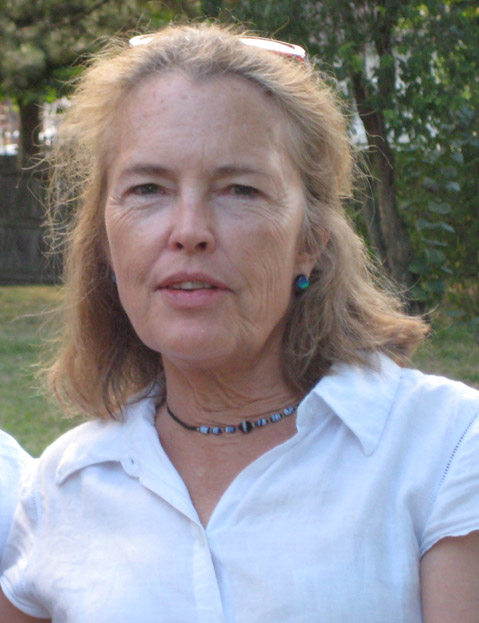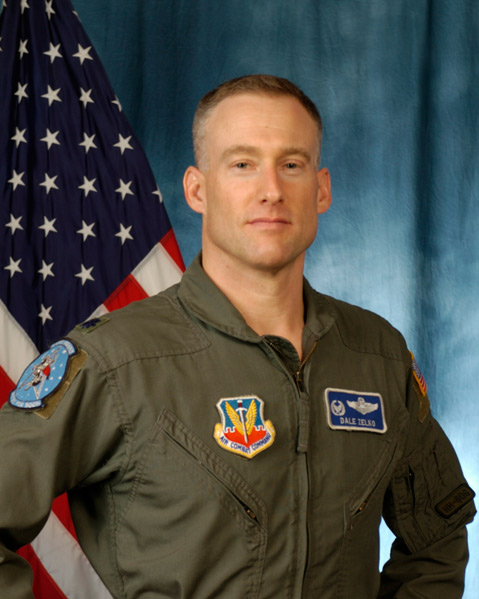No Hard Feelings
An American Pilot, a Yugoslav Colonel, and a Filmmaker
Two men of war – the American pilot of a Stealth F-117 shot from the sky over Serbia in March 1999, and the Yugoslav colonel whose rocket launchers brought down the so-called “Invisible” plane – are now men of peace and collaborating in a documentary about their unlikely friendship.
Both men left the military after the 1999 war and began new lives; the Serb as a baker; the U.S. pilot as a public speaker. The story of their first face-to-face meeting in Serbia six years after the March 27, 1999 shoot down is the subject of an ironic and touching documentary-in-the-making by independent filmmaker Zeljko Mirkovic called Second Meeting, or Drugi Susret.
The former adversaries met again this May to shoot the film’s final scenes in New Hampshire, where retired U.S. Air Force Col. Dale Zelko lives.

Oh, yes. The first meeting? It was on the rudimentary radar screen the Serbs fashioned from outdated Russian equipment and used in the hours before they blew the F-117 Stealth bomber from the sky.
As for film director Mirkovic, he has his own war story, one that helps frame his forgiving and rather playful present-day persona.
A native of Nis – Serbia’s second largest city – Mirkovic, 29, was riding his bike about a half block from the city’s large open-air farmers market on May 7, 1999 when NATO cluster bombs slammed the green market, the city hospital, and downtown pedestrian streets on the busiest day of the week. The day’s raids racked up the single worst civilian toll in the 78-day war: 13 people – including a pregnant woman—died; 26 others were critically wounded.
“I escaped that day, and ever since I’ve tried to think and to live differently,” said Mirkovic in an interview with this journalist a few months ago near Belgrade’s Students Square. Unlike many of his generation who remember a decade of bloody secessionist wars with former neighbors, and isolating sanctions as Serbia’s pariah status cemented under tyrant Slobodan Milosevic, filmmaker Mirkovic is not bitter, angry, or resentful towards NATO countries or the United States. In fact, many of Mirkovic’s projects speak to his hope for regional healing and the wider opening of Serbia to the world.
“Like all countries, we are not a nation of stereotypes, but a people full of all sorts of talents and energy,” said Mirkovic, who, with his dark, bristle-top hair could be tennis phenom Novak Djokovic’s older brother.
A graduate of the University of Belgrade, he has several award-winning indy films to his credit under his company’s moniker, optimisticfilm.com. One chronicles two friends – one a Serb, the other a Croat – as they travel the country once called Yugoslavia in a vintage Yugo sedan. Another is a comic narrative about a village accordion player who wants to see all 350 of his village’s bachelors married.
When he heard about the downing on the U.S. Stealth F-117 Mirkovic decided his next project would be a film about Zoltan Dani, the man who gutted the bomber and put U.S. pilot Lt Col. Dale Zelko, of New Hampshire, in a ditch near Budanovci, a village just north of the capital city and target, Belgrade.

The story of Second Meeting is full of irony. For starters, the U.S. Stealth pilot Zelko is the grandson of a Yugoslav who relocated to the United States after WWII from what is now Slovenia. Zelko had never visited the land of his ancestors before he set off in the single-seat F-117 to bomb it. He ended up ejecting from his $43 million-plus state-of-the-art bomber a couple hours from where his grandfather grew up. After the war, Zelko left the Air Force and now speaks about his survival and on themes of war, peace, and reconciliation.
In fact, it was one of these speeches, at Washington’s Air and Space Museum years ago, that brought the former adversaries together. The way Dani tells it, he was down in his pastry kitchen kneading dough for donuts when his son, Timor, called him upstairs to see something he’d found on the Web.
“Timor asked me, ‘Dad, what would you say to the pilot you shot down if you ever met him?’” Dani said during an interview in Belgrade.
“I don’t know… ‘Want to have a beer?’” Dani said. Then his son showed Dani a picture of Zelko and, when he translated Zelko’s speech, that was the beginning of the idea to invite Zelko to Serbia. Along with his bakery, now runs a tourist agency in Serbia’s Vojvodina region.

For his part, smelling a film, Mirkovic decided to facilitate the former adversaries’ meeting by sending them both small, high-density cameras so they could prepare video diaries of their everyday lives. For Zelko’s wife’s first trip to Dan’s village, his wife made a friendship quilt for the family. “We both survived the war,” she says in the trailer.
In another interesting twist, the U.S. Embassy in Belgrade decided months ago to support Mirkovic’s film with a modest grant of about 6,000 Euros. This, despite the fact that the crippling of one of its premier fighting machines – only three days into the 78-day U.S.-led NATO war – was an acute embarrassment. In fact, within minutes of the Stealth’s downing, scores of international news teams were on the ground to search for the U.S. pilot and to film the plane, now clearly visible for the world to see.
The incident spawned dozens of morale-boosting jokes in Serbia which went viral on the nascent Internet – (“Sorry, we didn’t know you were invisible.”) – and immediately entered the military lore of this small country up against the Goliath of global military ability.
Today, the remnants of the F-117 rest in Belgrade’s Air Museum at the Surcin Airfield, also badly hit in1999.
In an April interview in one of Belgrade’s bustling outside cafes, Dani said in the weeks leading up to the war he and his group secretly re-jiggered an old Russian microwave-type radar so it could see a blip of the “invisible” F-117 as it headed south out of Hungarian airspace. “With this special TV-like frequency my men picked up a shadow of the plane as it entered Serbia. We waited for it to get closer to Belgrade. Then I ordered my rocket launchers to fire… We knew the whole action must be completed in 20 critical seconds,” because in the next seconds the bomber would drop its load, Dani said.
The major hurdle now facing Mirkovic and his production crew is a funding gap. While he has supportive letters from The Serbian Ministry of Culture, The Serbian-American Chamber of Commerce, and several embassies in Belgrade, actual hard currency donations are lagging. “Blame it on the global crisis, inertia, or competing demands. But money is a problem,” Mirkovic admitted. Over six months, Mirkovic filed numerous applications with groups sponsoring cultural projects and he continues to hope small donations will help him with the editing, subtitle translations, and other production costs.
He is planning to start at the end of July editing 120 hours of footage into a 90-minute documentary, plus 45-minute segments for television.
“I am optimistic, like the name of my company,” said Mirkovic, “But I now see I must try crowd funding like IndieGoGo or KickStart if I want to ever see this project up in lights in theaters.”
Joan McQueeney Mitric grew up in Santa Barbara. Her work has appeared in numerous publications including The New York Times, The Washington Post, The Los Angeles Times, The Atlanta Constitution, and Mother Jones, and scores of outlets in the Balkans, where she spends half the year and speaks the language.



